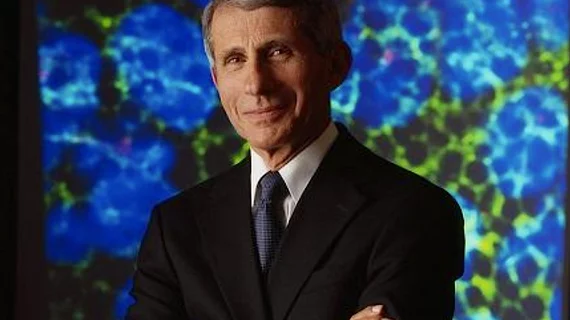Anthony Fauci tests positive for COVID-19
The nation's face of public health in the prevention of COVID-19 during the pandemic, Anthony S. Fauci, MD, tested positive for COVID-19 on a rapid antigen test, according to a statement from the National Institutes of Health (NIH) released Wednesday, June 15.
Fauci is the director of the National Institute of Allergy and Infectious Diseases (NIAID), part of the NIH, and chief medical advisor to President Biden.
The NIH said he is fully vaccinated and has been boosted twice, according to the CDC guidelines. He is currently experiencing mild symptoms. The NIH said Fauci will isolate and continue to work from his home.
Fauci has not recently been in close contact with President Biden or other senior government officials, The NIH said Fauci will follow the COVID-19 guidelines of the Centers for Disease Control and Prevention (CDC) and medical advice from his physician and return to the NIH when he tests negative.
CDC guidelines on boosters
Fauci's illness serves as a reminder for many to get their COVID booster shots to maintain protection against the virus.
In 2021 there were major efforts to get Americans vaccinated to stem the number of serious SARS-CoV-2 cases and hospitalizations. Today, about 222 million Americans are vaccinated against COVID, out of a total U.S. population of 325.5 million. About 103.5 million remain unvaccinated. Unvaccinated patients made up the more than 75% of patients who were hospitalized in the last COVID wave.
Health researchers have determined that the vaccine effectiveness of all three COVID vaccines available in the U.S. declines over time, which led the CDC to recommend booster shots.
With the BioNTech or Moderna COVID-19 vaccine, a booster should be administered starting at least 5 months after their final dose of the initial vaccination series. With the single dose Johnson & Johnson Janssen vaccine, the CDC suggests 1 booster, preferably of either Pfizer-BioNTech or Moderna COVID-19 vaccine, at least 2 months after a J&J/Janssen COVID-19 vaccine. A second booster is suggested for adults ages 50 years and older at least 4 months after the first booster using either the Pfizer-BioNTech or Moderna COVID-19 vaccine.
Visit the CDC's "Stay Up to Date with Your COVID-19 Vaccines" page for more information.

